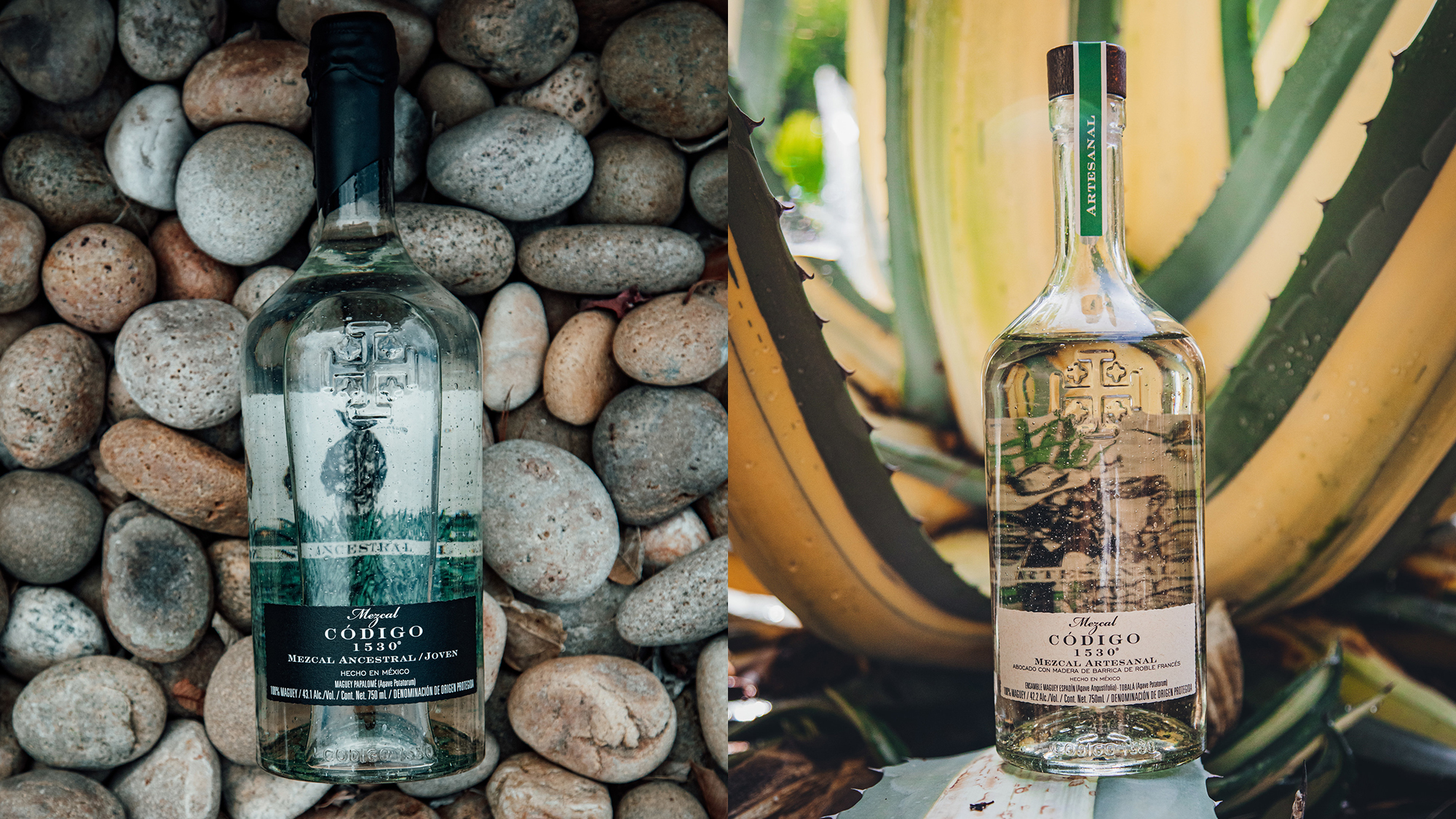Código 1530 is releasing an Ancestral Mezcal and an Artesanal Mezcal. The brand says their mezcals “have flavor profiles that are smooth on the palate, with subtle smoke to sip alone or layer into an interesting cocktail.”
“After many years of going to Oaxaca, we were able to partner with trusted local producers from different regions in the San Juan del Rio region,” explained co-Founder/co-CEO Ron Snyder. “With their help, we have had access to a wide variety of palenques and communities, hence the ability to make a very unique and exceptional ensemble.”
Código 1530 opted to use a Mezcal Master to adjust the process such as the temperature and different types of agave rather than machinery. This human effort guarantees the highest quality and efficiency at all times, while keeping sustainability in mind. Additionally, the brand uses agave from three different regions to ensure that the company is never over harvesting any of its agave, and prioritizes the time needed for land regeneration from harvest.
“Código 1530 has a great opportunity when creating its mezcal to use different types of agaves to obtain a wide range of natural flavors. By carefully combining different agave types, using espadín and tobalá from different terroirs, an incredibly well balanced mezcal was found that can be enjoyed either straight or in a cocktail,” said co-Founder/co-CEO Federico “Fede” Vaughan.
“‘Pearls’ tell the first story of mezcal, giving you a rough estimate on its ABV. It is by tradition we still view this method as our first stopping point in our process, allowing the gourd and benecia to produce ‘pearls’ while we watch for the size of the bubbles and how long they take to dissipate. This is our traditional method, our starting point, but certainly not our end point,” Vaughan added.
The Ancestral expression keeps with the ancient process and honors the origins of mezcal, the people producing it, and the region of Oaxaca. Because no machines or automation are involved in the process, the higher priced mezcal, Ancestral, is even more rare and has a different profile than the Artesanal mezcal. Starting with a sweet, earthy nose, notes of honey, tobacco and salinity from clay can be tasted, followed by bright minerality, vanilla, cantaloupe and hazelnut to finish. The agave is mashed by hand using a wooden stick, the fermentation is done in a leather vat, and the distillation in clay pots. This can only be done by a master distiller with vast experience and knowledge of mezcal, which is what makes this process so valued and appreciated. This unique mezcal is inherently sustainable because the process is so slow, and so careful, that overproduction is not possible. There are no machines anywhere in our ancestral process, and the fermentation vats, stills, and pestle have been used for generations.
The Artesenal expression follows the traditions of mezcal, incorporating a donkey-pulled tahona wheel, wild fermentation with begasso, and copper still for distillation. A market standout, due to the use of different terroirs that capture the flavors of different elevation regions of Oaxaca. This includes a wild tobalá incorporated in the process, to capture the bold notes of western Oaxaca. The Artesanal mezcal is then rested in sauvignon blanc wine barrels to take advantage of the herbaceous aroma to create something unique with notes of floral, light woody vanilla, citrus, dark cherry with hints of earth and clay and a delicate, subdued smoke.
Both Ancestral ($180) and Artesenal ($65) mezcals from Código 1530 are now available through the brand’s official website or from licensed fine retail shops. The Ancestral is bottled at 43.1%, while the Artesanal comes in at 42.2%.



